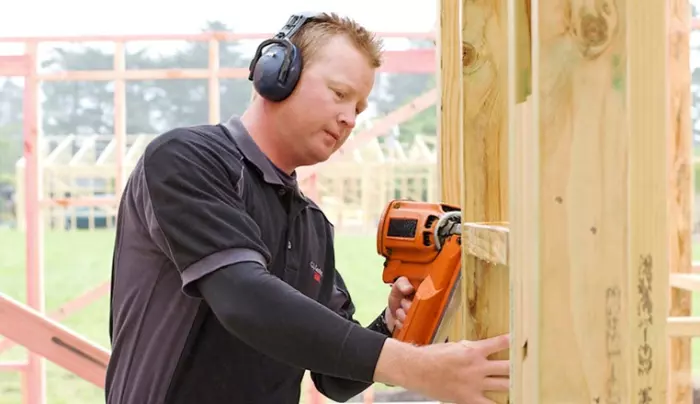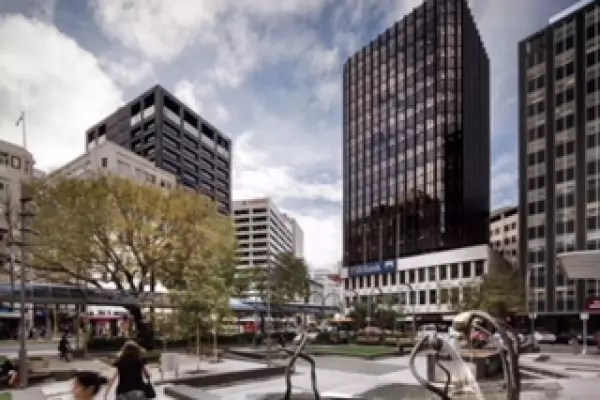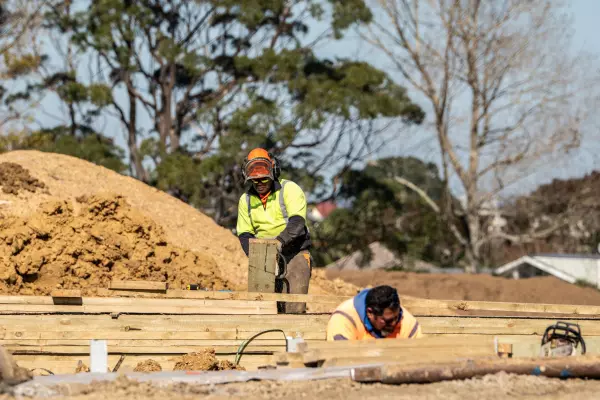Registered Master Builders says New Zealand's 'fragmented' consenting system can account for up to a fifth of cost blowouts.
The Building Research Association (Branz) estimates that residential building costs can vary by as much as $900 a square metre – from $3,000 sqm in Otago to about $2,100 sqm up the road in Canterbury.
That puts the national average at about $2,500 sqm, which translates to an average home build of just under $479,000 for a three-bedroom, 190 sqm dwelling.
The cost implications of delays to both builders and homeowners can be significant.
A Master Builder survey of its 3,000 members suggests that almost half of builders have experienced delays of more than five weeks, on an average build time between six and nine months.
That could escalate build prices by as much as 20%, it said.
The prescribed deadline is 20 working days for consenting authority sign-off, but Master Builder chief executive David Kelly said there is a "high degree of scepticism" about that timeline.
"To be fair to them, some of the quality of the applications they get just aren't good. But we've been saying this for 15 years and nothing's changed, so we'd like to see a nationally consistent system that rewards those that do a good job and have a good track record, versus those that don't."
Kelly would also like the 67 territorial authorities condensed into a handful, with possibly only one or two specialist consenting entities for commercial builds.
"Some of our members, particularly high-volume builders, work across multiple authorities and that becomes frustrating and expensive when they're dealing with different processes, paperwork and standards."
That fragmented system is often the root cause of cost blowouts, he said, as one project may be quickly consented in one area but a similar project in another part of the country can be rejected for "reasons that are hard to fathom".
Consentium
In its submission to the Ministry of Business, Innovation and Employment (MBIE), Master Builders noted the unwillingness of some consenting authorities to accept alternative materials, for example Gib plasterboard substitutes during recent supply challenges, or rationalise processes to recognise that some builds are "less risky" than others.
He said the fact that government housing provider Kāinga Ora has opted to form its own non-territorial consenting company, Consentium, in 2019 is a sign of the wider problem.
While subject to the same building rules, Kelly said the approach is an indictment of the process as it stood, as they recognised Consentium was a necessary move for them to "get things moving" across its projects.
The biggest territorial authority is Auckland council, which approved 21,743 dwellings for the 12 months to July. At the other end of the scale, the Chatham Islands came in at three approvals.
Kelly said there was also a large variance in cost between those councils some of which subsidise the cost of consents through to those who get full cost recovery. Also, he said it gets quite 'murky' with greenfield or brownfield developments where there were development fees for infrastructure.
Those fees can be substantial, anywhere between $25,000 to $93,000 per home depending on the region and scale of development.
Now, given the ramped-up housing market of the past few years, the ministry wants to 'modernise' a regulatory regime that hasn't changed since 1991.
Kelly said it is an opportunity to address a 'broken' system, which is being hampered by a "risk-averse" approach, inconsistencies, and underinvestment in technology, all adding up to delays and high costs for homeowners and builders.
Infuriating
The Master Builders' submission cited one example of a company that had a "challenging foundation" involving four-metre foundation holes, signed off by geotech and structural engineers, but had to wait five weeks for inspection.
"During this time the excavated holes filled up with water, so we had to pay a specialist contractor another $3,000 to come and pump the water out. And the most infuriating part was that when the council inspector finally turned up, he didn't really look at anything. He just asked if we had the engineer's site notes from his visit."
Paul Bull, chief executive of Signature Homes – the country's second-largest residential build franchise with more than 800 homes built every year – said consenting was one of the biggest issues for the firm.
"Some of the councils are easy to deal with, but much of it can depend on the relationship you have with the inspector, and even the mood they're in at the time."














